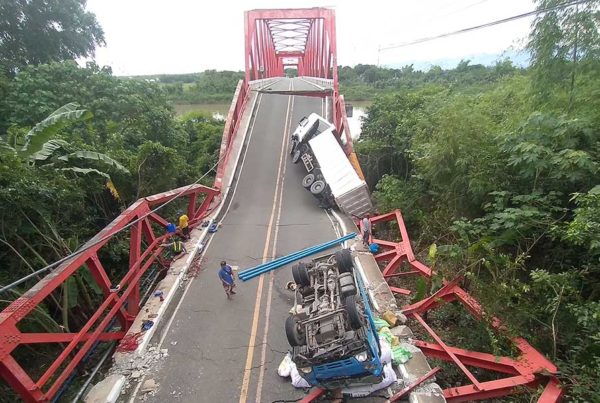Plan the future
S. Bill Jimenez
14 Oct 2009
Today Is Not Forever
TODAY IS NOW. It’s neither yesterday nor tomorrow. It’s simply today. Not forever! Even the crisis brought by Ondoy and Pepeng is only temporary. It’s always helpful to consider how we live our days. Looking back at our past, living our present, and thinking of our future can be overwhelming if done at once. We should have the wisdom to consider separately and appropriately the regrets of the past, the burdens of the present, and the uncertainties of the future. To live our days well requires faith and confidence in our God, for “in him we live and move and exist” (Acts 17:28). In an unstable world, our God is steadfast and dependable. Let’s consider how to 1) forget the past, 2) live the present, and 3) plan the future.
Forget the Past. “Forgetting” doesn’t mean blotting out from memory experiences of the past. It’s not being overburdened or bothered anymore by those experiences. We merely learn and profit from them. Winston Churchill said, “If we open a quarrel between the past and the present, we shall find we have lost the future. That echoes William Shakespeare who wrote, “Let’s not burden our remembrances with the heaviness that’s gone.” Past regrets may provoke gratitude. God’s providence works in mysterious ways.
Live the Present. Let’s start the day with positive and optimistic attitude: Living today happily and creatively requires positive thinking and proactive disposition. Victor Frankl, who was imprisoned in Nazi Germany, learned by observing his fellow prisoners that we can have the freedom to choose our behavior. We can create in our minds something beyond present reality. The Lord Jesus tells us “not to be anxious for your life,” repeating it four times in Matthew 6:25-34. Faith and trust in God improves our disposition. So don’t worry! Replace your worry list with a prayer list. “Let go and let God. ” When confronted with a problem, let’s adopt the “third day test.” The Lord arose on the third day with glorious victory. Often, we have a better perspective of our problem after a time has passed. We ask ourselves, “How significant is this problem after three days, three months, three years, or three centuries?” Usually problems are smaller than we realize. No big deal!
Plan the Future. This calls for planning and action. Plan your work and work your plan. It’s better to plan and fail than to fail to plan. As the wise man aptly said, “Where there is no vision, the people perish” (Proverbs 29:18). Norman Vincent Peale said to visualize, prayerize, and actualize.
Planning the future demands deliberate, objective, and methodical action. Doubt and fear must be replaced by hope and optimism. The Lord Jesus tells us to “seek first his kingdom and his righteousness” and “not be anxious for tomorrow” (Matthew 6:33-34). As we plan for the future, let’s not leave God out of the picture. We pray to him for guidance as we embark on our personal and business affairs. We must have the attitude of, “If the Lord wills, we shall live and also do this or that” (James 4:15). Forget the past. Live the present. Plan the future. Three simple ways to live lovingly, faithfully, and hopefully.
Share your Comments or Reactions
Powered by Facebook Comments







